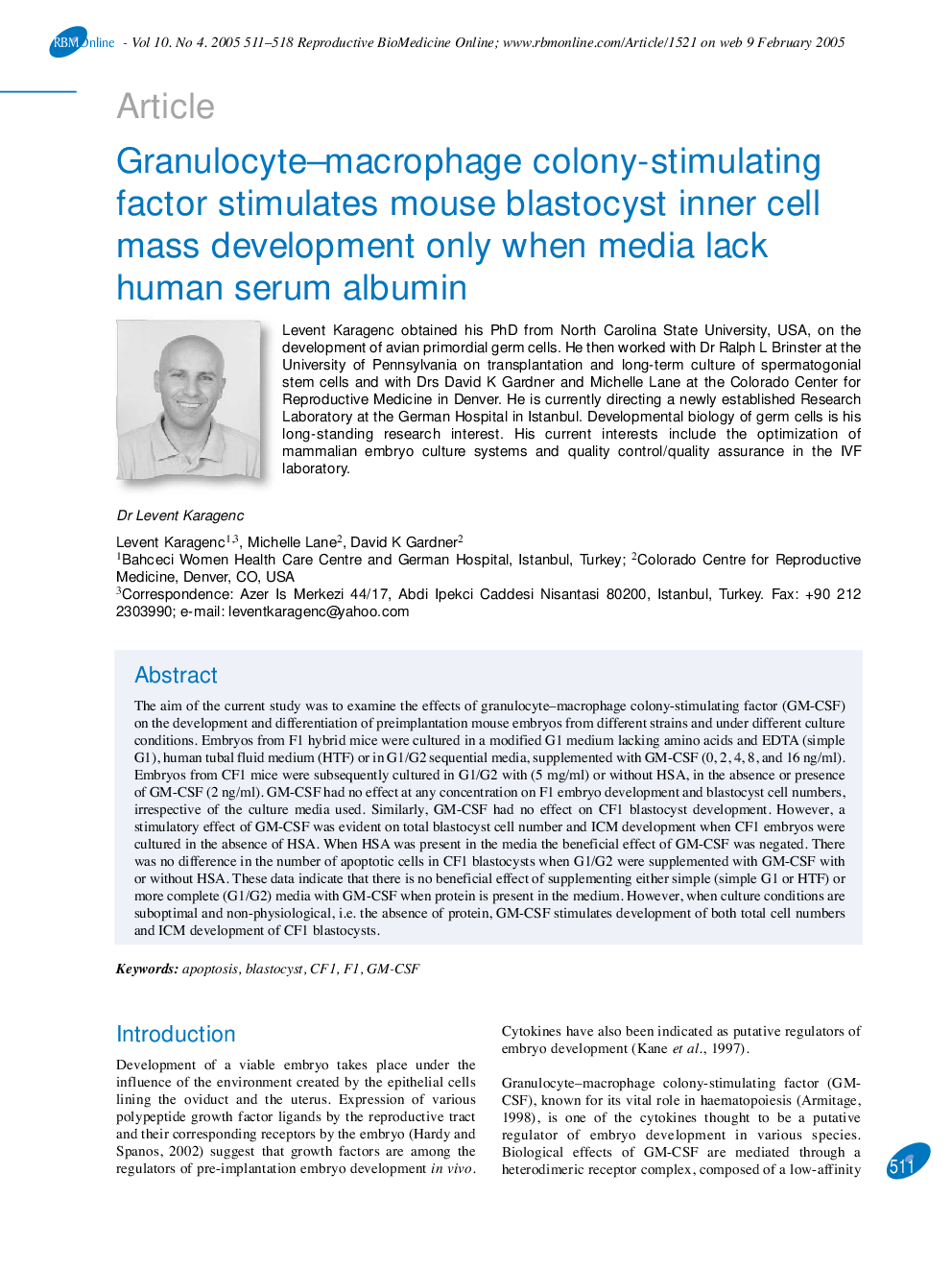| Article ID | Journal | Published Year | Pages | File Type |
|---|---|---|---|---|
| 9334732 | Reproductive BioMedicine Online | 2005 | 8 Pages |
Abstract
The aim of the current study was to examine the effects of granulocyte-macrophage colony-stimulating factor (GM-CSF) on the development and differentiation of preimplantation mouse embryos from different strains and under different culture conditions. Embryos from F1 hybrid mice were cultured in a modified G1 medium lacking amino acids and EDTA (simple G1), human tubal fluid medium (HTF) or in G1/G2 sequential media, supplemented with GM-CSF (0, 2, 4, 8, and 16 ng/ml). Embryos from CF1 mice were subsequently cultured in G1/G2 with (5 mg/ml) or without HSA, in the absence or presence of GM-CSF (2 ng/ml). GM-CSF had no effect at any concentration on F1 embryo development and blastocyst cell numbers, irrespective of the culture media used. Similarly, GM-CSF had no effect on CF1 blastocyst development. However, a stimulatory effect of GM-CSF was evident on total blastocyst cell number and ICM development when CF1 embryos were cultured in the absence of HSA. When HSA was present in the media the beneficial effect of GM-CSF was negated. There was no difference in the number of apoptotic cells in CF1 blastocysts when G1/G2 were supplemented with GM-CSF with or without HSA. These data indicate that there is no beneficial effect of supplementing either simple (simple G1 or HTF) or more complete (G1/G2) media with GM-CSF when protein is present in the medium. However, when culture conditions are suboptimal and non-physiological, i.e. the absence of protein, GM-CSF stimulates development of both total cell numbers and ICM development of CF1 blastocysts.
Keywords
Related Topics
Health Sciences
Medicine and Dentistry
Obstetrics, Gynecology and Women's Health
Authors
Levent Karagenc, Michelle Lane, David K Gardner,
